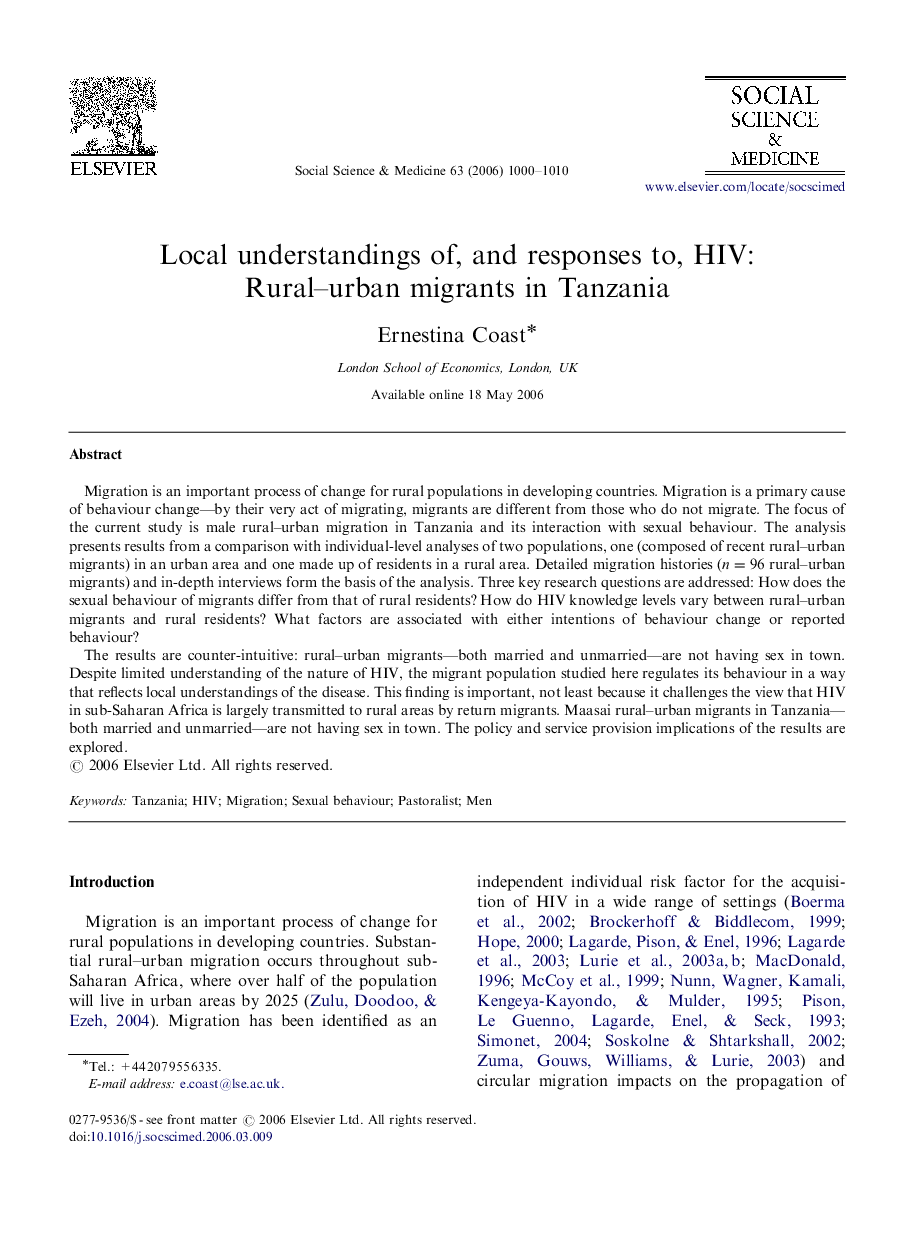| Article ID | Journal | Published Year | Pages | File Type |
|---|---|---|---|---|
| 954303 | Social Science & Medicine | 2006 | 11 Pages |
Migration is an important process of change for rural populations in developing countries. Migration is a primary cause of behaviour change—by their very act of migrating, migrants are different from those who do not migrate. The focus of the current study is male rural–urban migration in Tanzania and its interaction with sexual behaviour. The analysis presents results from a comparison with individual-level analyses of two populations, one (composed of recent rural–urban migrants) in an urban area and one made up of residents in a rural area. Detailed migration histories (n=96n=96 rural–urban migrants) and in-depth interviews form the basis of the analysis. Three key research questions are addressed: How does the sexual behaviour of migrants differ from that of rural residents? How do HIV knowledge levels vary between rural–urban migrants and rural residents? What factors are associated with either intentions of behaviour change or reported behaviour?The results are counter-intuitive: rural–urban migrants—both married and unmarried—are not having sex in town. Despite limited understanding of the nature of HIV, the migrant population studied here regulates its behaviour in a way that reflects local understandings of the disease. This finding is important, not least because it challenges the view that HIV in sub-Saharan Africa is largely transmitted to rural areas by return migrants. Maasai rural–urban migrants in Tanzania—both married and unmarried—are not having sex in town. The policy and service provision implications of the results are explored.
